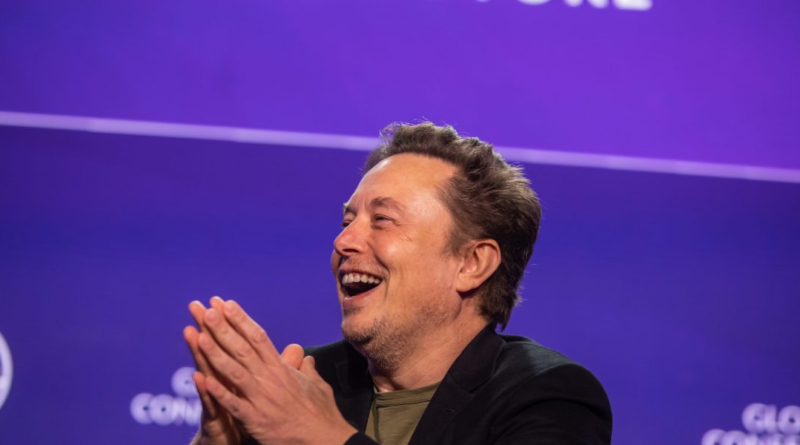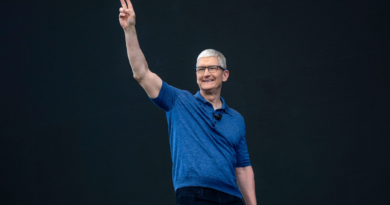CEOs make nearly 200 times more than other workers and their pay hikes keep outpacing employees. It’s an ‘outrage,’ a top advisor says
Two thirds of all Americans believe companies are doing a poor job of reigning in the wealth gap between CEOs and typical employees, according to early results of a poll conducted by Gallup and Bentley University.
The results have not been officially released yet, but findings so far reveal for the third year in a row that an overwhelming majority of Americans believe that reducing the pay gap between CEOs and average workers is not only an important issue, but also one that corporate boards are failing miserably to address.
“CEO pay is an outrage. It’s atrocious. And it hugely undermines confidence in our institutions,” Nell Minow, vice chair of ValueEdge Advisors, told CNN, which was first to report on the survey findings.
In 2023, the average CEO of an S&P 500 company earned 196 times as much as typical employees, up from 185 in 2022. Some 83% of Americans told pollsters that it was either somewhat or extremely important that businesses try to reduce the yawning chasm between average pay for top executives and pay for median employees. At the same time, just 13% of respondents said companies were doing a fair job of keeping CEO pay under control.
But if public opinion on CEO pay appears overwhelming—and consistent, both year-over-year and across demographics—it doesn’t seem to be having much of an impact.
Median compensation packages for S&P 500 CEOs rose nearly 13% last year, even as pay and benefits for private sector workers rose just over 4%, according to the AP’s annual compensation survey. The results of the survey, analyzed for the AP by Equilar, showed that the average pay for CEOs rose to $16.3 million including cash and stock-based awards, while the median employee at an S&P 500 company earned $81,467.
“Instinctively, it doesn’t seem fair. How can a CEO make 196 times the average worker?” Cynthia Clark, a professor of management at Bentley University, told CNN.
The new findings also showed that political party affiliation wasn’t a major factor in how Americans viewed the pay gap between CEOs and employees. In the survey, 96% of Democrats said reducing the pay gap was important. Republicans, while not as ardent, still overwhelmingly said the issue was important (66%).
CEO pay is “an issue that cuts across the political spectrum,” Sarah Anderson, director of the Global Economy Project at the Institute for Policy Studies, told Fortune. In fact, she said it might even be a factor behind the resurgence in organized labor activity in 2023, as dissatisfaction with company profits getting funneled to the top of the pay scale boiled over at major unions like United Auto Workers.
“Coming out of the pandemic, the idea that one person in a corner office is worth hundreds of times more than frontline workers, many of whom were doing essential work to keep our economy going—people just aren’t buying that anymore,” Anderson told Fortune.
The Gallup-Bentley findings aren’t the first polling this year that has shown bipartisan contempt for CEO pay.
A poll in April by Data for Progress asked respondents how they would feel about implementing legislation that hiked taxes on companies that pay their CEOs at least 50 times the median pay of employees. The results showed overwhelming approval from both Republicans and Democrats.
Bills like the one surfaced by pollsters have been floated before in both chambers of Congress, including one introduced this year by Sens. Bernie Sanders of Vermont and Elizabeth Warren of Massachusetts called the Tax Excessive CEO Pay Act.
But Anderson said that kind of legislation has stalled because corporate lobbyists continue to pound the table that CEOs of big corporations are almost singehandly responsible for shareholder value. The talent pool for top executives is incredibly competitive, and if they don’t pay up, CEOs will go off to other companies that will.
“I think most Americans really see through that argument now, and understand that employees up and down the pay scale are contributing value to these companies,” Anderson said. “It says a lot about who really has a strong voice in Washington. Those corporate lobby groups who are still pushing that outmoded idea still have a lot of say.”
This all comes as Tesla shareholders today approved the largest pay package in history for CEO Elon Musk at $56 billion.
“Shareholders are the group that ought to decide pay packages,” Bentley professor Cynthia Clark told Fortune in an email. “The big concern with Musk’s award is not what he will do if he doesn’t get it, much covered in the news, but what will happen with other CEO’s and the pay ratios if he does.”
Anderson told Fortune that Musk’s pay package offered an interesting look at other mechanisms for reigning in CEO pay. In January, a Delaware judge vetoed Musk’s payout due to corporate governance issues, and several major institutional investors, including two of California’s public pension plans, came out against the deal ahead of today’s vote.
“It’s encouraging to see some major institutional investors take a stand against this obscene pay package that was approved by his brother and his divorce lawyer, and these other people who have such cozy ties with the executives,” Anderson said. “But there is a really high hurdle to getting majority votes against pay packages at companies.”



